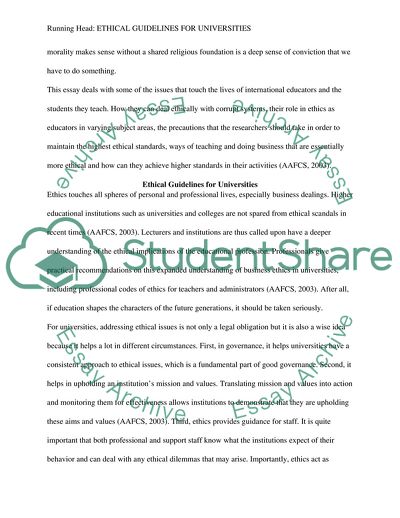Cite this document
(Ethical Guidelines for Universities Coursework Example | Topics and Well Written Essays - 3750 words, n.d.)
Ethical Guidelines for Universities Coursework Example | Topics and Well Written Essays - 3750 words. https://studentshare.org/ethics/1851928-what-ethical-guidelines-if-any-do-you-think-the-university-should-follow
Ethical Guidelines for Universities Coursework Example | Topics and Well Written Essays - 3750 words. https://studentshare.org/ethics/1851928-what-ethical-guidelines-if-any-do-you-think-the-university-should-follow
(Ethical Guidelines for Universities Coursework Example | Topics and Well Written Essays - 3750 Words)
Ethical Guidelines for Universities Coursework Example | Topics and Well Written Essays - 3750 Words. https://studentshare.org/ethics/1851928-what-ethical-guidelines-if-any-do-you-think-the-university-should-follow.
Ethical Guidelines for Universities Coursework Example | Topics and Well Written Essays - 3750 Words. https://studentshare.org/ethics/1851928-what-ethical-guidelines-if-any-do-you-think-the-university-should-follow.
“Ethical Guidelines for Universities Coursework Example | Topics and Well Written Essays - 3750 Words”. https://studentshare.org/ethics/1851928-what-ethical-guidelines-if-any-do-you-think-the-university-should-follow.


